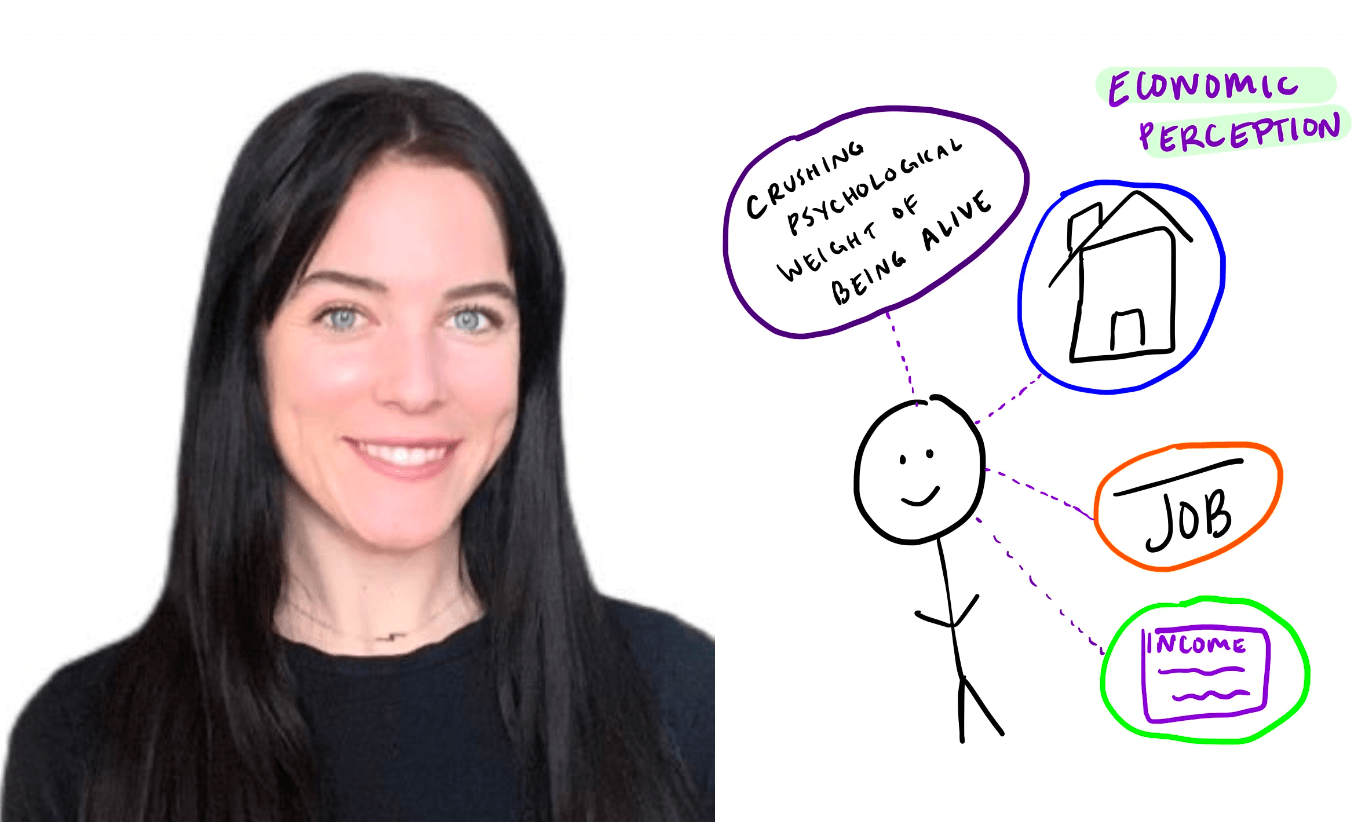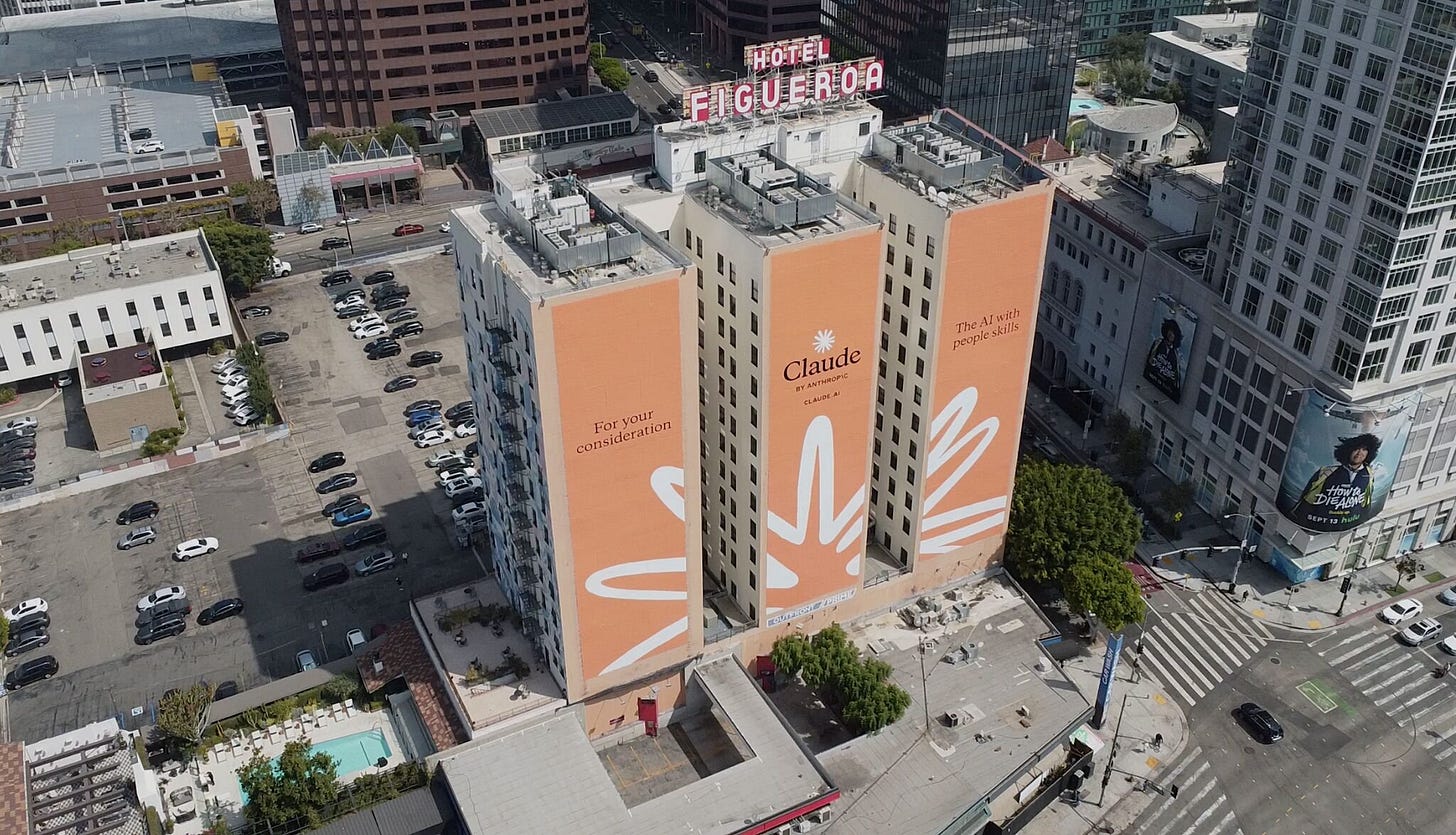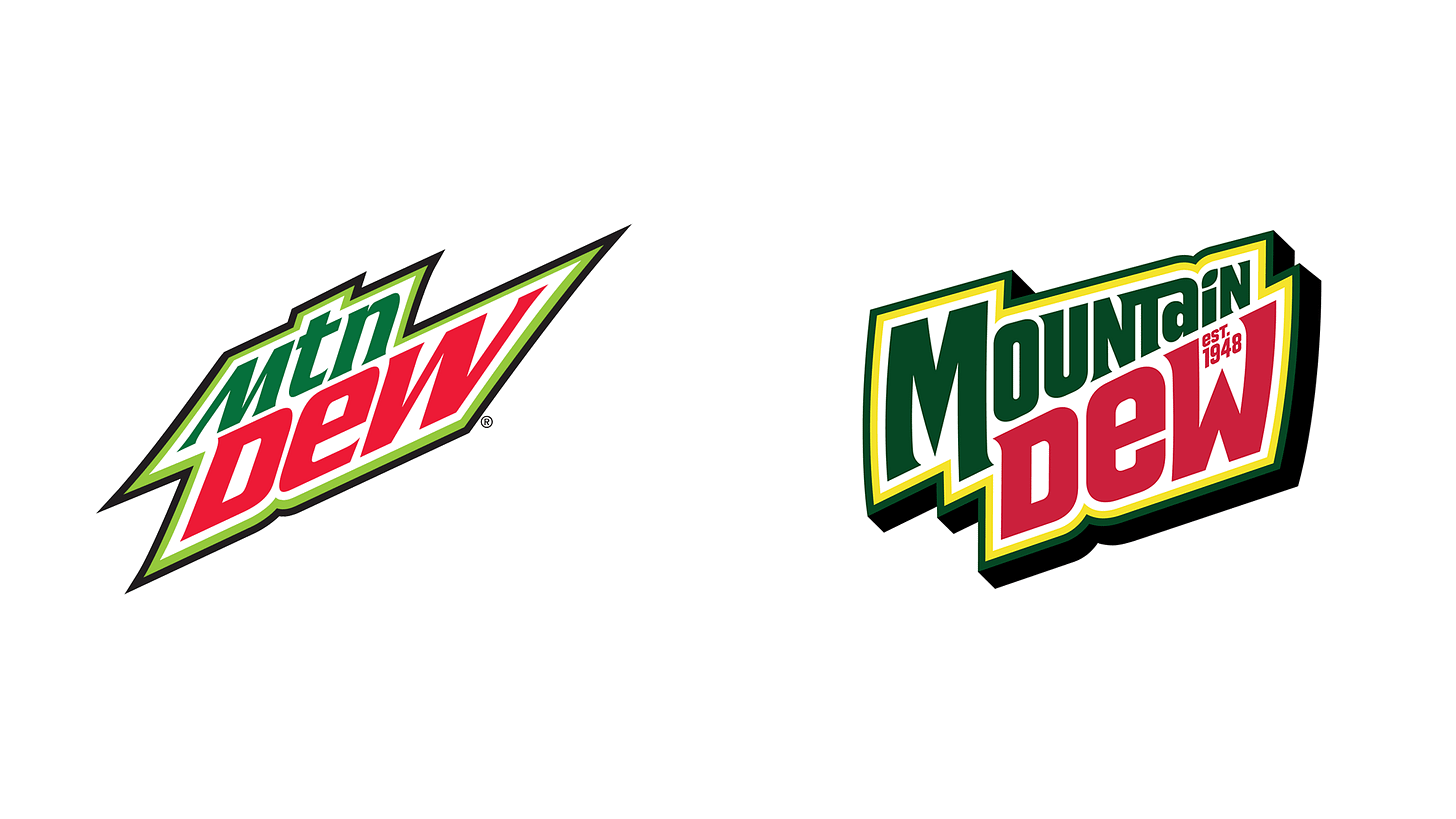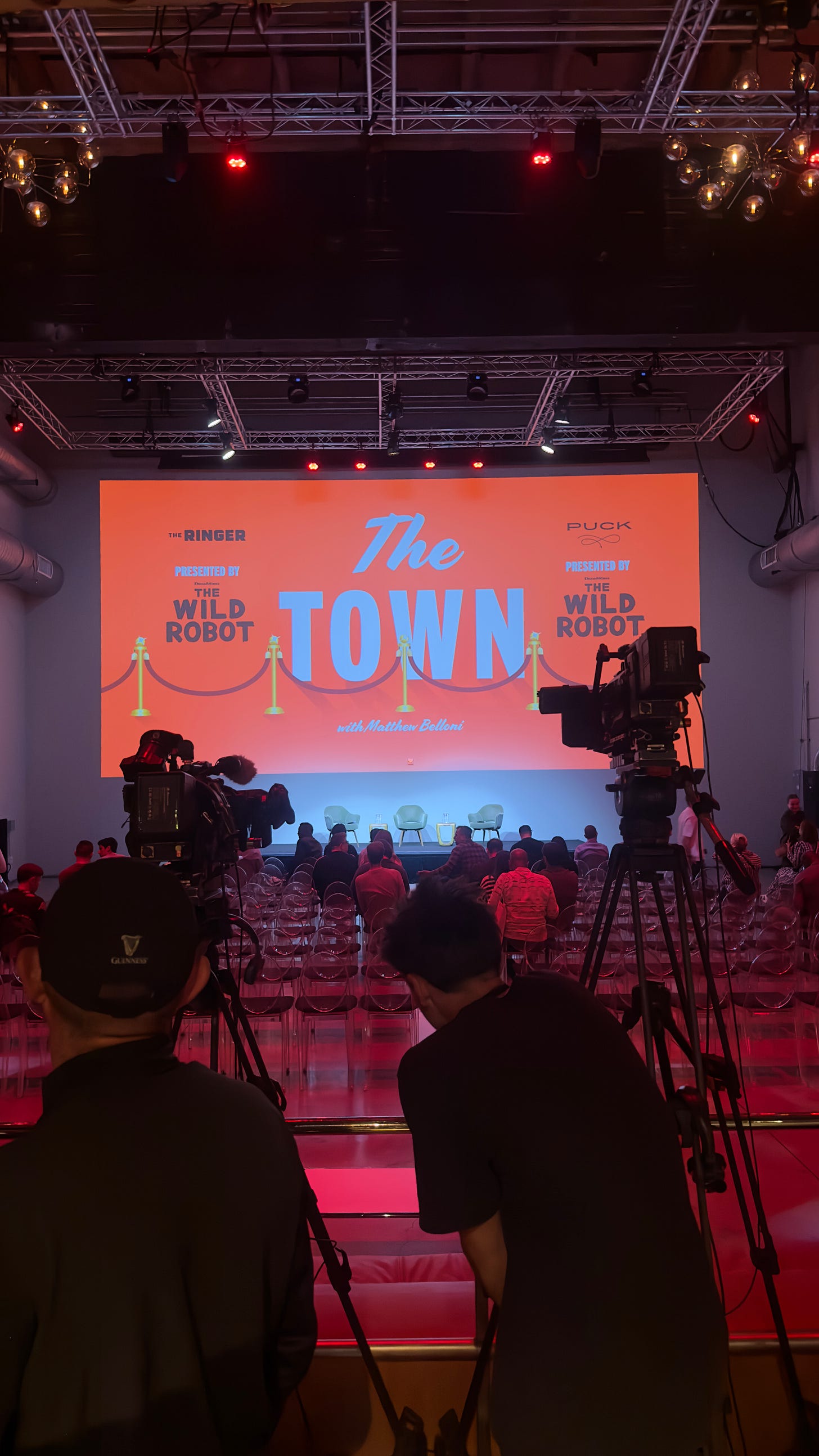004: Anti Algorithm Sentiment Grows
AI Ethics. Is Tech Marketing Good Now? The Town Interview with FX Network Chairman John Landgraf. Mountain Dew rebrand. Chaos Packaging gets international coverage.
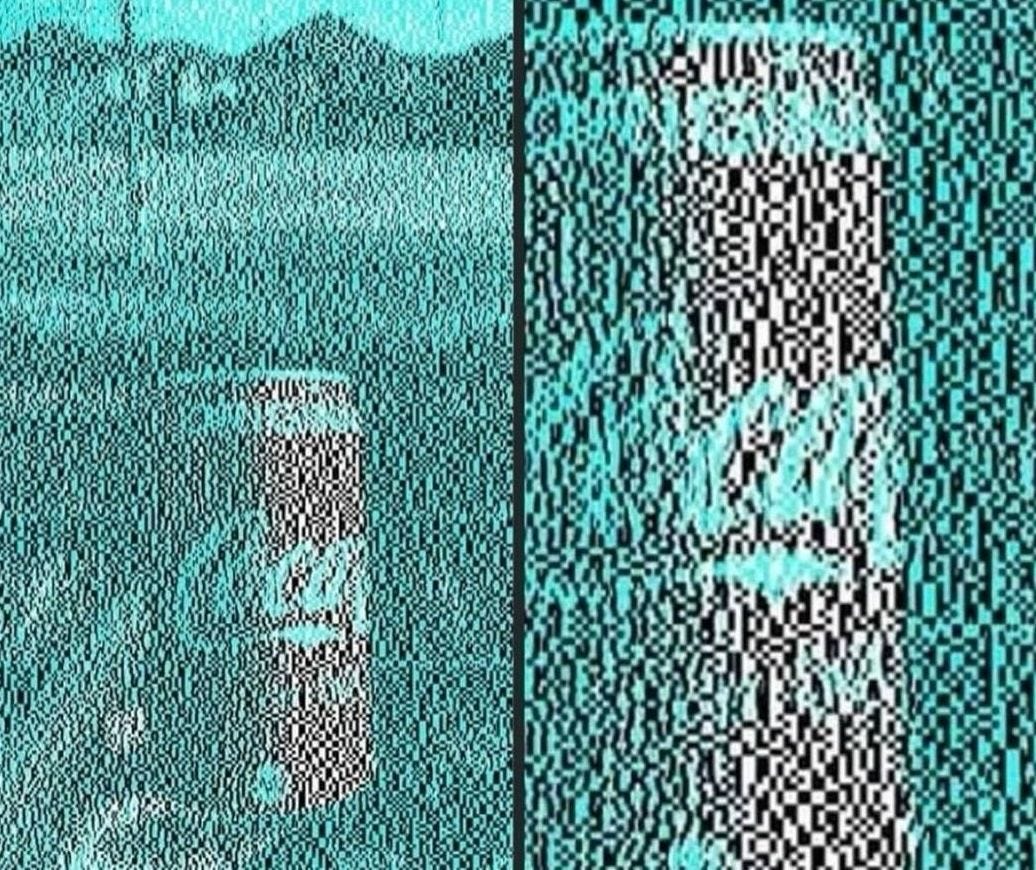
We’re at 830 subscribers, with 92 new subs since the last email. 63% open rate. Doing things a bit differently this week and dropping on a Monday instead of Sunday to see how it affects engagement (if you have strong opinions on this, please let me know). A warm welcome to new readers from Mejuri, Zulu Alpha Kilo, Wellpal Creative, Office of Applied Imagination, G/O Media, AKQA, Wieden+Kennedy, KnoCommerce, Digitas, OMD, Salesforce, EssenceMediacom, Two Sigma Ventures, and Chipotle (among others).
Private Slack Update: We’re at 75 on the waiting list for the Third City Private Slack Community, which I’ll be launching in ~2 weeks! If you’re interested, sign up. There will be a paywall for anyone who signs up after November 1.
Book Giveaway Update: Congratulations to Jenn Smith for winning a copy of Friend of The City Kyla Scanlon’s debut book, In This Economy? How Money & Markets Really Work. There’s one more to give away, so if you’re interested, please enter.
The Discourse
The NY Times published an article asking the question: Can AI Be Blamed for a Teen’s Suicide? It’s an incredibly sad and disturbing story, and something that I fear will occur again unless proper action is taken. But what is that action? Who is to blame? I tend to agree with Friend of The City Seyi Taylor, that Character.ai should have been able to identify and red flag self-harm language as it was occurring in the app. There are also major Section 230 implications, which if you’re not familiar, immunize tech platforms from actions of any third parties. I still have hope that AI companions can be a net positive, especially for the elderly, but I’m also fearing the dire negative externalities of an unregulated AI companion market that is worse than what social media and dating apps have done to society over the past 15+ years. In any case, after a day of sharp online debate, it feels like this story is already out of the news cycle. I’d hate for this sort of tragedy to be normalized in the same way that school shootings have been normalized. We are better than that.
Is Tech Marketing… good now? It feels like the new generation of consumer AI platforms and hardware companies are being more thoughtful with their branding, positioning, messaging, and media mix, which in many ways flies in the face of a decade+ of “best practices” for B2B and SaaS growth. Perplexity and Anthropic, for example, feel more like warm/aspirational consumer brands and are executing on both B2B (shout out to the Perplexity Pro LinkedIn and Uber One partnerships!) and B2C fronts, where the latter feels more like a modern B2CB approach vs the more traditional and tired Tech B2BC playbook. Could Perplexity and Anthropic have fueled their growth by relying on PLG, growth hacks, and brute force enterprise negotiation + lower funnel customer acquisition programmatic advertising instead? Sure, but that would 1) be really boring and 2) would do nothing to create the brand distinction needed to differentiate themselves from competitors… especially now as consumer AI is white hot and still in the early innings. And it’s not just startups. I’m a fan of the Ray-Ban Meta Smart Glasses TV commercials that are playing during the World Series. They showcase multi-modal AI functionality without needing to say “AI” at all, which is a victory in and of itself. Branding has always mattered, and it’s great to see a return to fundamentals. Progress!
Mountain Dew rebranded / refreshed its brand identity, and everyone has an opinion. Sentiment ranges from it being more approachable, less sinister, very retro (and therefore more relevant in the current cultural zeitgeist), merch-friendly, throwback with a rustic ski resort vibe, and a “return” to the brand’s roots (for the record I think the “est 1948” is odd). I honestly can’t remember Mountain Dew having anything other than its gamer-fuel positioning, and think that is the most interesting part of this rebrand effort: Mountain Dew seems to be distancing itself from its association and alignment with gaming culture, to (hopefully) expand their audience and find new customers who previously thought the beverage “wasn’t for them.” I wouldn’t necessarily call this strategy “brave” as much as it could be entirely practical, especially as their core gamer consumer has aged (the cultural alignment started in earnest circa 2007), and with a younger generation of gamers now being courted by even-more-hardcore-gamer-drinks. I haven’t read any official press releases or case studies about the rebrand, so this is all speculation and my POV on the effort, so take it with a grain of salt.
ICYMI, “Chaos Packaging,” a trend that I accidentally coined in a tweet, made the Wall Street Journal last week, and was subsequently picked up on The Today Show on NBC, NPR, The Times in the UK, and dozens of other media outlets. It’s been a very cool experience to see it picked up internationally and discussed on podcasts. I’m thankful for journalists like Friend of The City Katie Deighton for covering trends at the intersection of culture, design, and commerce. Also, as an aside, please engage with my LinkedIn post on the topic… I’m trying to program that algorithm!
Anti-Algorithm Sentiment Intensifies
Last week I was fortunate to attend the first-ever live taping of one of my favorite podcasts, The Town with Matthew Belloni, at NeueHouse Hollywood. As someone who has always worked adjacent to but never “in” Entertainment, Matt’s podcast has been an invaluable resource to understand the business and culture dynamics of the city that I currently live in. The LA Entertainment community (everyone from executives to writers to actors to crews to caterers) is struggling in the aftermath of the pandemic, strikes, and an increasing existential worry that Big Tech and AI will have a disproportionate amount of impact on the business moving forward. >50% of the people who I personally know in the industry are underemployed, and grinding to keep themselves afloat (and a few have physically left over the past year). I had a conversation with a marketing exec at one of the smaller streamers last week who said that “jokes about Hollywood being the next Detroit have… stopped being funny,” as the amount of work in the town slows to a crawl not previously seen by this generation’s talent. I don’t think people outside of LA understand how bad the vibes are out here. It feels like a dark cloud. In many ways, it feels like the exact opposite of the enthusiasm and optimism and endless possibility associated with e/acc-leaning AI industry enthusiasts.
The Town’s special guest for the live taping was John Landgraf, former President of Entertainment and current Chairman of FX Networks. Landgraf is a certified OG of the TV industry, who has accurately heralded the end of the Golden Age of TV and the start of a Gilded Age that would could the entire industry implode, unless measures were taken to push back against the economics of the streaming industry. He has been a very vocal critic of Netflix’s spend-anything-to-make-it-approach, while also admitting that if it hadn’t been for Bob Iger and the Disney acquisition, FX Networks might not exist today. The industry recognizes him for being responsible for green lighting and championing the development of The Bear and Shōgun, the latter of which won a record 18 Emmys for its first season. Hearing Landgraf speak on the current challenges in TV sounds like a counterfactual to the dominant Silicon Valley narrative about our AI-fueled creative future. For this reason, it was one of the most memorable fireside discussions I’ve ever sat through (and I’ve sat through hundreds).
The interview was so scathing at times that I am sure that it will be edited and toned down by The Town for mass distribution. I was hoping to get a scoop on The Town’s publishing of their edit, but Part 1 is now available as of this AM. I did manage to record the entire 1 hour+ long conversation, however, and can share the unedited audio file with any subscriber interested here. Just shoot me an email. Here are some select quotes from the interview:
On post-peak TV:
There were 180 original shows in 2002, a little under 300 in 2012, and over 600 in 2022, and that’s only counting English language… which is why we stopped counting altogether. Do you remember Netflix saying, “well, we’re not in the original program business, we just want to be a syndication service. We’re not competitive with you guys.” And then, boom, right? Billions of dollars flooded in. And then very quickly after, everyone chased them into the streaming business. Because what Wall Street basically said was, “we think this is the future of the business, you guys are the past and we’re not going to support you anymore from a capital perspective unless you get into streaming.” What I didn’t foresee was Apple, Amazon, and then every media company basically chasing after streaming and augmenting and adding that to their basic cable. It was obvious that that was unsustainable. This year, we’re probably going to be around 500 shows and… I wish this [didn’t sound] unfortunate, but it’s just too may shows. We can’t even professionally keep track of all the shows that are being made. We joke that we hear about shows for the first time when they are canceled.
On Big Tech’s effect on TV:
As long as you have companies like Apple with their $3.5 Trillion in market cap, and others who may be in it for other reasons, like Amazon with its $2 Trillion market cap… it’s not going to reveal itself in terms of a cash capital efficient marketplace. [If Paramount] is a new entity owned by somebody worth $200 Billion, it can spend whatever it wants to chase after the streaming future…. I can’t see where this goes, honestly. It could all be over in 2 years, but it could be 10 years, and we’re still duking it out right now. There are too many entrants making too many television shows to sustain.
On creative labor and the need for Quality over Quantity:
I hate to say anything that undercuts peoples’ need to work in jobs, because I’m really conscious of the fact that this business sucks right now for almost everybody, and it really, really sucks for writers and directors and crews and actors in Los Angeles. So I don’t want to pile onto that. But I would say that it’s really, really hard to make good television. It takes an enormous amount of time and energy and courage and devotion. And you know what? The whole industry has now ramped up beyond the capacity to devote that amount of time.
Beauty is in the eye of the beholder on some level, right? Because “quality” is what people love and what they want to watch. You can say it’s based on ratings, but let’s be honest, if we’re going to go back and make a list of the greatest movies ever made, is it going to be the top box office list, or is there another factor going on there? And that other factor is ambition. Creative ambition and aiming for quality. And that just takes time. It’s really hard, and I haven’t felt that the industry has been particularly focused on that [lately]. So you might get someone like Richard Gadd to make Baby Reindeer outside of the system. We’re trying to stealthily put those [types of projects] together. But the dominant output of those hundreds and hundreds of television shows is … just more about speed and more about the algorithm, I think, than taking the time. Now, I’m not denigrating anyone’s talent or involvement. I’m saying that [quality] takes time and you have to be patient, and that’s hard when you’re fighting for your life.
More on how Big Tech has compromised the economics of TV:
We had an ecosystem for a long time where we had all these major studios, none of which were ever going to destroy any of the others. They were all going to be there forever. They could afford to sell to each other, right? They could afford to share and move things around. Now you have entities like Apple and Amazon.. and frankly, Netflix… could run away with it all. You can’t just sell to them, because they can afford to overpay for years, decades, right? So it breaks the market, and then meanwhile, [number of shows contracted to produce] getting reduced from 22 to 18 to 15 to 13 to 10 to 8 shows. I can tell you, you can’t make a show like Shogun without writing all of the scripts in advance. It’s like a $200 Million feature film. You don’t go into production on a feature film with the first act and then guessing what acts 2 and 3 are going to be. So then you break the relationship between the writing room and the production, which is a key, key factor in how writers learn to be producers and directors and how they learn to run shows. So that was a dynamic [that existed] in the transition between the linear model and the emergent streaming model, and then… and then it was just destroyed.
And look, I was really frustrated for a long time, because what I heard was a lot of shit and a lot of shade from Silicon Valley. I mean, they crapped on Hollywood and its excesses… you know… fuck them.
At this point the audience, which felt like it was 90% Entertainment industry execs, exploded in applause, which encouraged Landgraf to cut even deeper into Silicon Valley:
I want to know what that group of people [Big Tech] have put into the culture that is the parallel of what this town has made for over 100 years. (Huge applause). But look, they’re going to push for capital efficiency in their model, and that capital efficiency breaks a lot of the traditional apprenticeship and the union structure and the production structure and a whole lot of things that were a part of what undergirded the quality of our industry. So I don’t think we’re struggling for quality because we lack talent. I think we’re struggling for quality because we lack the training system and the support system that allows the best talent to emerge, and take the time to aim high.
On algorithms:
I see algorithmic recommendations because I work for a streaming platform. Data can tell you what’s worked before. It doesn’t tell you what’s going to work in the future…. [There are things] the algorithm doesn’t know because the consumer doesn’t know. And that what the artist’s job is, to try to tune into these distant, very faint signals. The ones that no one’s ever heard before… the algorithm will never, ever tell you this is the thing that’s never been done before that you should do now…
This is only a small excerpt of what was a very punchy and pointed discussion. The entire conversation is worth listening to, regardless of your proximity to Los Angeles and the Entertainment industry at large. We live in such interesting times.
Community
Slack Access! A reminder that I’ll be jumpstarting a Third City Slack Community soon (ETA 2 weeks), with a focus on sharing research, access, and organizing Zoom and IRL events. One idea I’m excited to kick off is having small, members only group discussions about reports like eMarketer’s recent The Ad Agency Ecosystem 2024 report (chart excerpt below). I will very likely put up a paywall after Nov 1, so get in early and get in free by applying here.
Until Next Week
Are you interested in sponsoring this email to promote your brand, service, or product? Respond to this email with an inquiry and I’ll get back to you with a light media kit with analytics, reader composition, and placement details.
Lastly: I’m going to be looking for freelance, contract, and advisory work through the end of the year. Please keep me in mind. More details on that front in the next email email drop.
Until then, see you on the internet.



